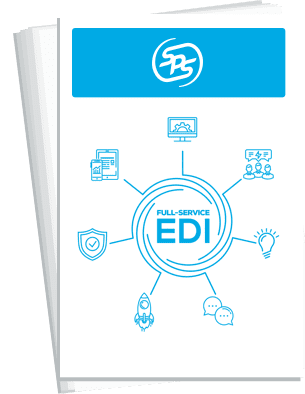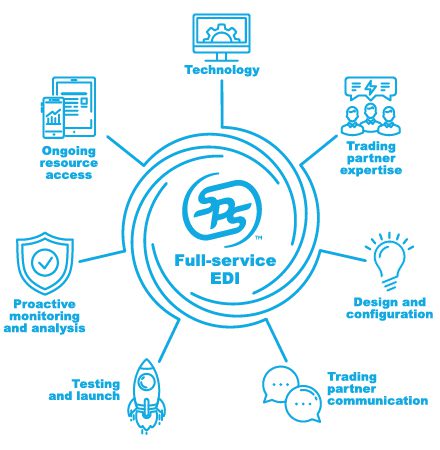
Evaluating Your EDI Options: Full-Service EDI & EDI Managed Services
The Seven Building Blocks of Full-Service EDI
What’s the difference between EDI managed services and full-service EDI?
EDI managed services are a cloud-based EDI solution in which the EDI provider is responsible for the developing and maintaining the core technology, but requires internal staffing for the day-to-day customization, optimization and operations of the technology.
Full-service EDI is a cloud-based solution and associated staffing resources that customize, optimize and operate the technology. In this model, the EDI provider carries out a complete business function on behalf of the customer.

THE CHALLENGE
Which type of EDI solution is right for your business?
THE APPROACH
A side by side comparison of the EDI solutions.
THE SOLUTION
A complete evaluation of EDI providers and the pros & cons of their offerings.
Full-service EDI solutions have seven primary components:
- Technology
- Trading partner expertise
- Design and configuration
- Trading partner communication
- Testing and launch
- Proactive monitoring and analysis
- Ongoing resource access

Full-service EDI providers deliver cloud-based technology and associated staffing resources that customize, optimize and operate the technology. Use these definitions and qualifying questions to make an apples-to-apples comparison between solution providers.
Choosing an EDI provider can be a challenge.
The right solution allows you to offload operational and technical details that are part of managing an EDI function.
Download our white paper to help you during your evaluation process.

Download our white paper to help distinguish differences in EDI providers.
